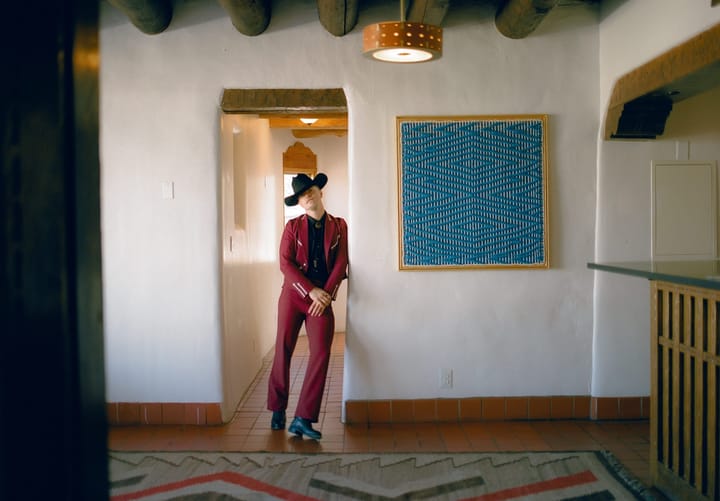I think maybe I have an unfair advantage with this week’s album, and next week’s choice too (Corb Lund’s Horse Soldier Horse Soldier): I already know and love these artists. But somehow, there are albums that I never got around to listening to, and I keep the rotation of the few that I know and love going without giving the other albums a chance. I suppose my ultimate goal with this project is exactly that: listen to the records that are getting dusty on my shelf. And knowing the artist already is likely a given, since I made the effort to buy the record in the first place.
So the story goes with Furnace Room Lullaby. I initially got into Case’s music when she played the Calgary Folk Festival in 1995 or ’96. I went out and bought The Virginian in 1999 and drove around the city in my little Ford listening to it on a tape that I made, since that car only had a tape deck. When her other albums came out, I bought them all. I especially liked the live one recorded in Chicago and Toronto, The Tigers Have Spoken (2004) and the most recent one, Middle Cyclone (2009). Lullaby features some of Case’s favourite collaborators, including Dallas and Travis Good from The Sadies, Kelly Hogan, and fellow New Pornographer Carl Newman, along with other superb musicians like Ron Sexsmith and Bob Egan.
So no wonder the album is incredible right from the first listen. Maybe I didn’t need any convincing, already being a pretty hardcore Case fan, but all of the songs are appealing. Case veers between the dark and contemplative, the sorrowful, and the joyful (sometimes even bordering on manic).
Case’s soaring vocals open the album on “Set Out Running,” catching the listener’s attention immediately. This slow-tempo ballad on escaping heartbreak is a nice introduction to the power of her voice, against which rich arrangements don’t stand a chance. “Guided By Wire,” follows, with a catchy melody set against a nice alternating bass-strum country pattern on the guitar. The chorus is filled out with thick backing harmonies that showcase Case’s Patsy Cline like-hiccups. Next, on “Porchlight,” Case’s wide-reaching range is evident, especially in the repeating refrain that features impossibly high ethereal melodies.
An element of Case’s music that I have always liked is the production. No matter who she works with, it seems to take a cue from the Wall of Sound era, with thick textures, heavy orchestration, and busy arrangements, although none of that takes away from her voice (in fact, it probably augments it). The reverby opening of “Mood to Burn Bridges” is evidence of this, and throughout her voice is equally echo-heavy. “No Need to Cry” is a welcome change of pace, with dreamy vocals and swooshes of brushed drums creating the torch song setting nicely.
Case focuses heavily on her hometown of Tacoma, both in “Thrice All American” and “South Tacoma Way,” chiding it at the same time that she lovingly embraces it:
Buildings are empty like ghettos of ghost towns
It gives me a chill to think what was inside
I can’t seem to fathom the dark of my history
I invented my own in Tacoma
“Thrice All American” in particular has a great accordion solo in the middle.
Solemn tunes like “Bought and Sold” and “South Tacoma Way” are balanced out by the frenetic pace of “Whip the Blankets,” which really demonstrates how solid her voice is when singing at such a fast tempo. A zooming two-stepper, the tune anchors Case in the country genre if there is ever any question as to where her loyalties lie.
Well, I’m not surprised I love this album as much as the rest of hers.



![The Art of the Cover Song [ESSAY]](/content/images/size/w720/2026/01/DAVID-HUCKFELT--4--by-Graham-Tolbert-1.jpg)
Comments ()